|
Braiding Sweetgrass by Robin Wall Kimerer, professional leaders are offered inclusive vocabulary and new perspectives to enhance organizational communication practices and collaborative problem solving. As a citizen of the Potawatomi Nation, Kimerer’s personal experiences readily transfer to the erasure/dismissal culture Native Americans and other non-dominant members experience in professional organizations.
Learn more about Kimerer at her website. Reading Questions
Silences In Stewardship: Some American College Indian Examples Patricia O. Covarrubias and Sweeney R. Windchief is a case study featuring silence as a communication tool by Native American students in academic institutions. Covarrubias and Windchief offer leaders greater context into the overlapping intricacies of exclusive organizational standards pertaining to group participation and silence as a form of communication. When silence is misinterpreted by organizations this results in compounding exclusion of marginalized groups. Access the case study online and choose to support Native American scholars http://dx.doi.org/10.1080/10646170903300754. Reading Questions
Let me know if you have read these books and share your thoughts on the reading or leadership questions.
0 Comments
4 QUESTIONS TO START IDENTIFYING CISGENDER PRIVILEGE
Hate crimes committed against the transgender community and transgender suicide often stem from fear and a lack of knowledge about cisgender privilege. By improving your leader allyship knowledge and skills, you can take the first steps to save transgender lives by creating an equitable and inclusive organizational culture. #leadershipdevelopment Questions To Identify Cisgender Privilege 1) Where is the nearest gender neutral restroom at your work? If you do not know, that is cisgendered privilege. As a cisgendered person you automatically have multiple options for access to restrooms that support your identity. As an organizational leader your cisgender privilege directly influences policy dictating the availability of gender neutral restrooms. 2) How frequently do you include your pronouns in your introductions in person, virtually, and written communication? If the answer is not always, that is cisgendered privilege. As a cisgendered person you have the privileged option to not disclose your gender during first time introduction and still benefit from being correctly gendered by others. As an organizational leader you set the acceptable standard of professional organization introductions, normalizing gender disclosure in meetings destigmatizes the practice and removes the burden from already vulnerable individuals. 3) Before traveling do you check the limitations of local laws for safe transportation, lodging, and rest stops based on your gender? If the answer is no, that is cisgendered privilege. As a cis gendered person unrestricted travel with hospitality accommodations, food service, and transportation are often readily available to you compared to being refused service if you were a trans person. 4) Have you ever attended a baby shower/gender reveal party for work and questioned how it normalizes the exclusion of trans folks? If the answer is yes, that is cisgender privilege. A transgender person might feel silenced, erased, minimized, and dismissed as all the party guests celebrate a familial/cultural standard of identity that they do not fit into. It also perpetuates an exclusionary standard against transgender people because it normalizes the practice of cisgender based parties for the next generation being born. Comment below if you've successfully incorporated all four new beahaviors into your professional daily life. Racial Profiling Example: MODEL MINORITY MYTH In Action On Delta Airlines
hashtag#dei hashtag#leadershipdevelopment hashtag#communicationskills hashtag#leadershipcoach Leader Questions: Where do you see internal oppression in the case study below? How does internal oppression show up in your professional and personal life? Visit Step Up Step Back’s website to learn more DEI terms and leadership practices. SITUATION: On a flight home from a conference I was seated in the back half of the plane with mostly Latinx, Afrolatinx, and Black students. At the last portion of the flight, a flight attendant announced congratulations for the students from San José State University’s engineering program who recently completed a successful engineering conference. BEHAVIOR: Upon boarding, the flight attendants minimally and coldly engaged with me when I made eye contact and greeted them or while snacks were distributed. After the announcement, the flight attendants made eye contact with me, smiled, and even offered me congratulations for my engineering accomplishment as the students’ chaperone. IMPACT: The flight attendants unintentionally assumed I was the chaperone of the engineering program. Due to their racial bias, they singled me out as the only Asian American among the students who would most likely be the qualified science, technology, engineering, and math (STEM) chaperone, despite their chaperone being present. The actual chaperone was a Latino cis man who was visually identifiable by the 6’ engineering poster he carried onto the plane. 1) Perpetuates a standard of racial profiling and discriminatory behaviors as an international airline company and professional organization. - Deters customer loyalty due to unwelcoming transportation environments. - Employees’ discriminatory behaviors depart from the organization’s mission “to create opportunities, foster understanding and protect our planet and the people within it.” - Poor practice to engage with customers based on their physical appearance. 2) Excludes other races from being viewed as high achievers in STEM programs - Perpetuates a harmful racism among folks of global majority (people of color) that specifically Black and Brown STEM accomplishments and their leaders are devalued compared to Asians/Asian Americans. - Maintains White culture as the ultimate power of authority in STEM and others non-White individuals. 3) Enforces a false standard of generalization that Asians/Asian American are all accomplished in STEM. - Erases and minimizes Asians/Americans who do not fit into the model myth minority, such as myself. Comment if this resonated with you! 🙂 ✊ Offering a DEI real experience for folks to learn from if you do not identify as indigenous. Based on my lived truth and undeniable experience last year. #indigenouspeoplesday #ally #DEI
SITUATION: I met with a DEI compliance manager in an effort to network and learn from her professional experience as senior leadership. BEHAVIOR: At the end of the conversation I thanked her for her time and wished her a happy Indigenous People's Day. She asked "Is wishing someone good things on this day appropriate?" and proceeded to explain to me that this day is not necessarily a day of celebration. IMPACT: In this moment, a White woman, a colonizer, and an outsider to indigenous struggles was unknowingly explaining to me, a fourth generation Uchinanchu/Shumanchu (indigenous Okinawan), that Indigenous People's Day was not necessarily positive. Her actions prioritized her good intentions over her unintended harmful impacts. Her bias of what an indigenous person looks like informed her choice to assume that I was unfamiliar and inexperienced on indigenous matters. She employed her best DEI practices to educate me on Indigenous People's Day as she saw fit from a DEI ally and colonizer's mind set. At the end of the day she could go home to sleep in peace that she had shared her "woke" view with a young professional on how this holiday was not exclusively a positive holiday. To the best of my knowledge, I am Uchinanchu/Shumanchu with lineage from Uruma (Gushikawa) village of Okinawa. As an indigenous person, I chose self care in this situation. I decided it was not my responsibility nor obligation to explain how her single question erased and minimized multi-generational trauma in my family based on American and Japanese colonialism, genocide, and land occupation in Okinawa. Learn about USA military occupation here: https://lnkd.in/dnBGB_xz I joyfully choose to celebrate this day in remembrance of the lives lost, sacrifices made, and outstanding resilience of my ancestors. Today I tell my living family and indigenous friend that I see them and I am grateful for them. I encourage them to continue practicing our indigenous cultures and speaking our languages as the next generation of indigenous elders. For non-indigenous folks, please take the time today to learn whose land your professional organization occupies and how you can partner with them for a mutually beneficial relationship. Before engaging with indigenous folks take the time to do your research to pronounce names correctly and acknowledge the space you take up as a colonizer. When engaging with indigenous folks please remember that we hold no obligation to share our cultural knowledge with non-indigenous folks and we do not exist to be tokenized in ERGs or volunteered to coordinate DEI programming. Hanashi hangaku / We learn through the stories of others. - Uchinaaguchi Proverb |
Learn & ExploreBlog posts to expand your leadership knowledge and increase your exposure to DEI Archives
June 2024
Categories |
Proudly powered by Weebly
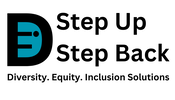
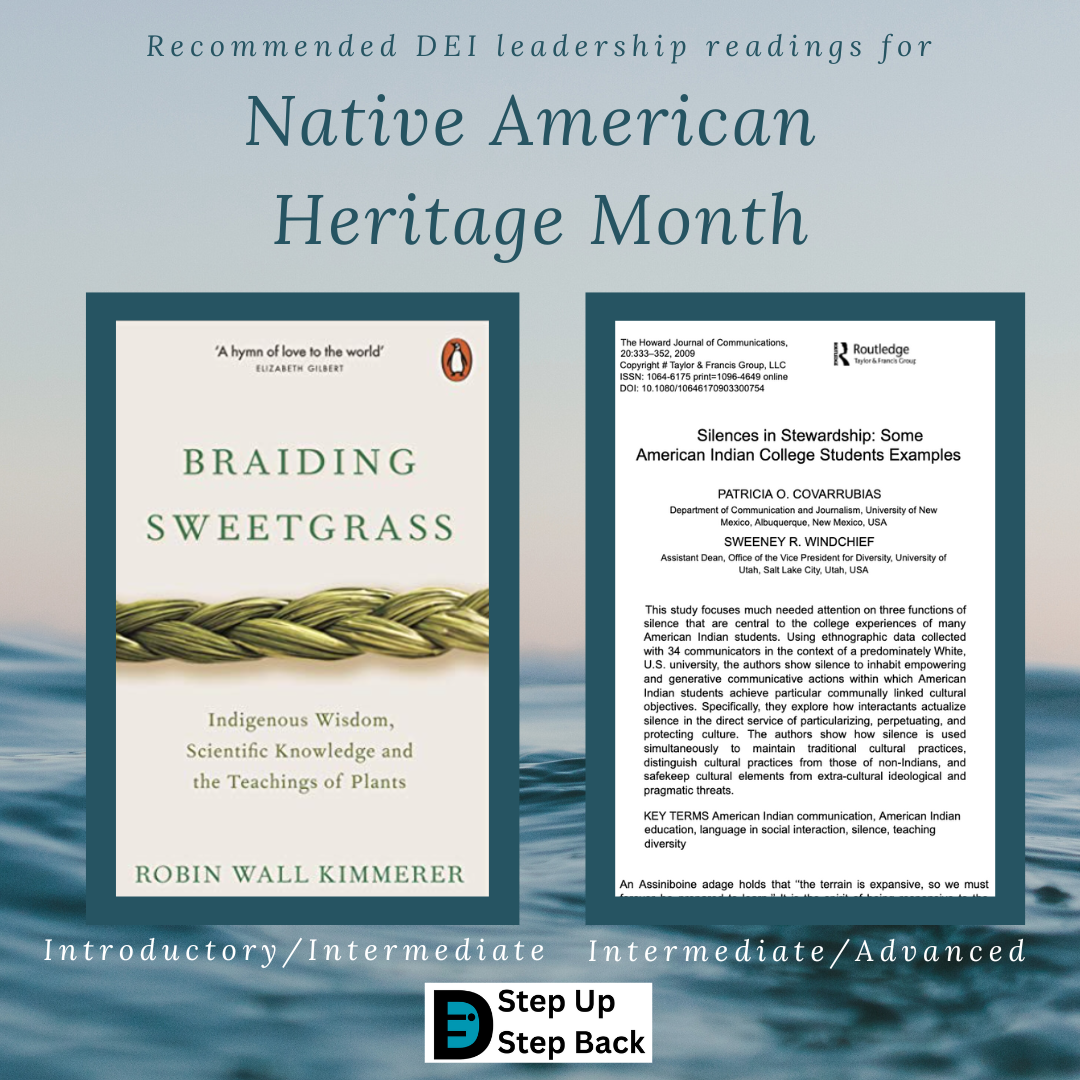
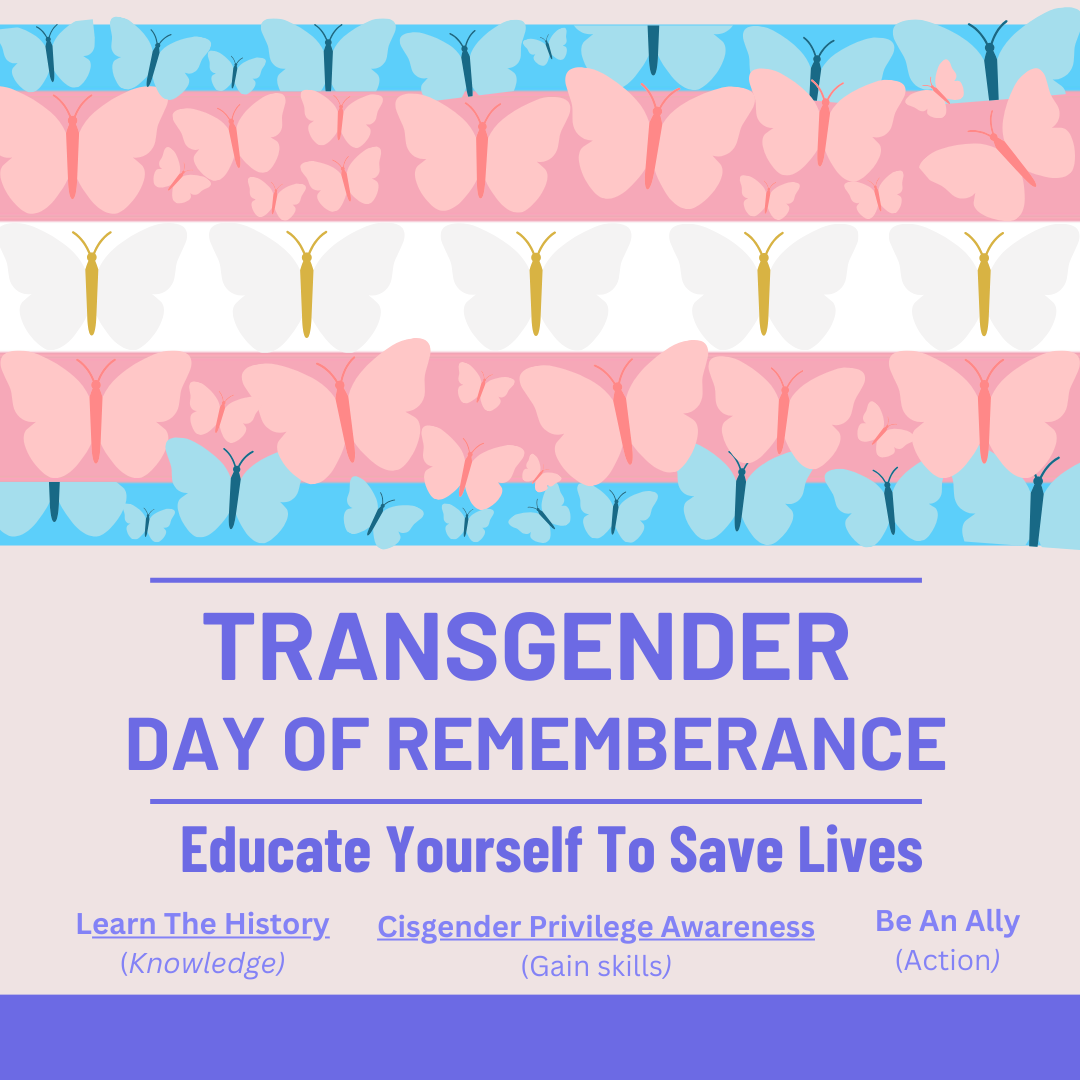
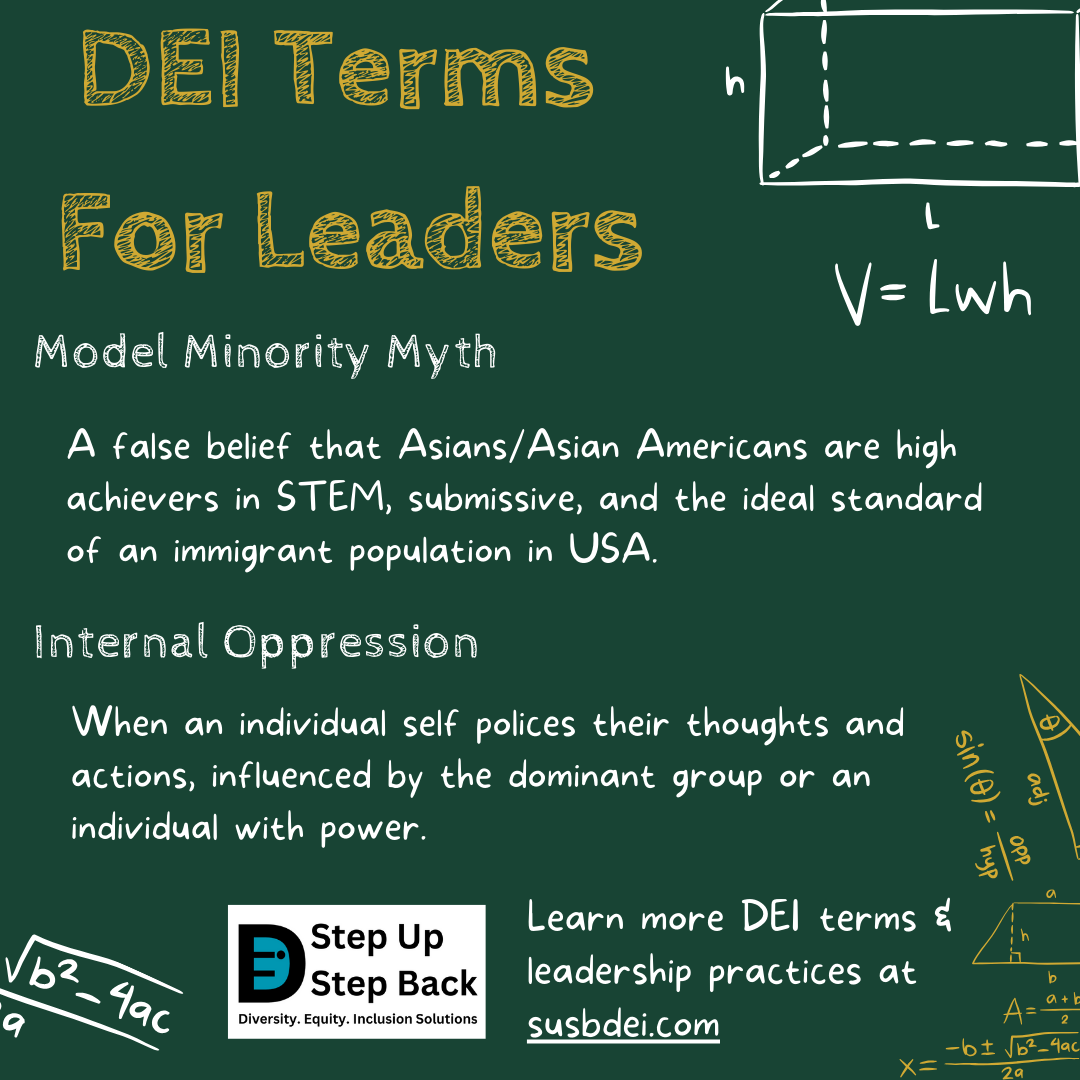
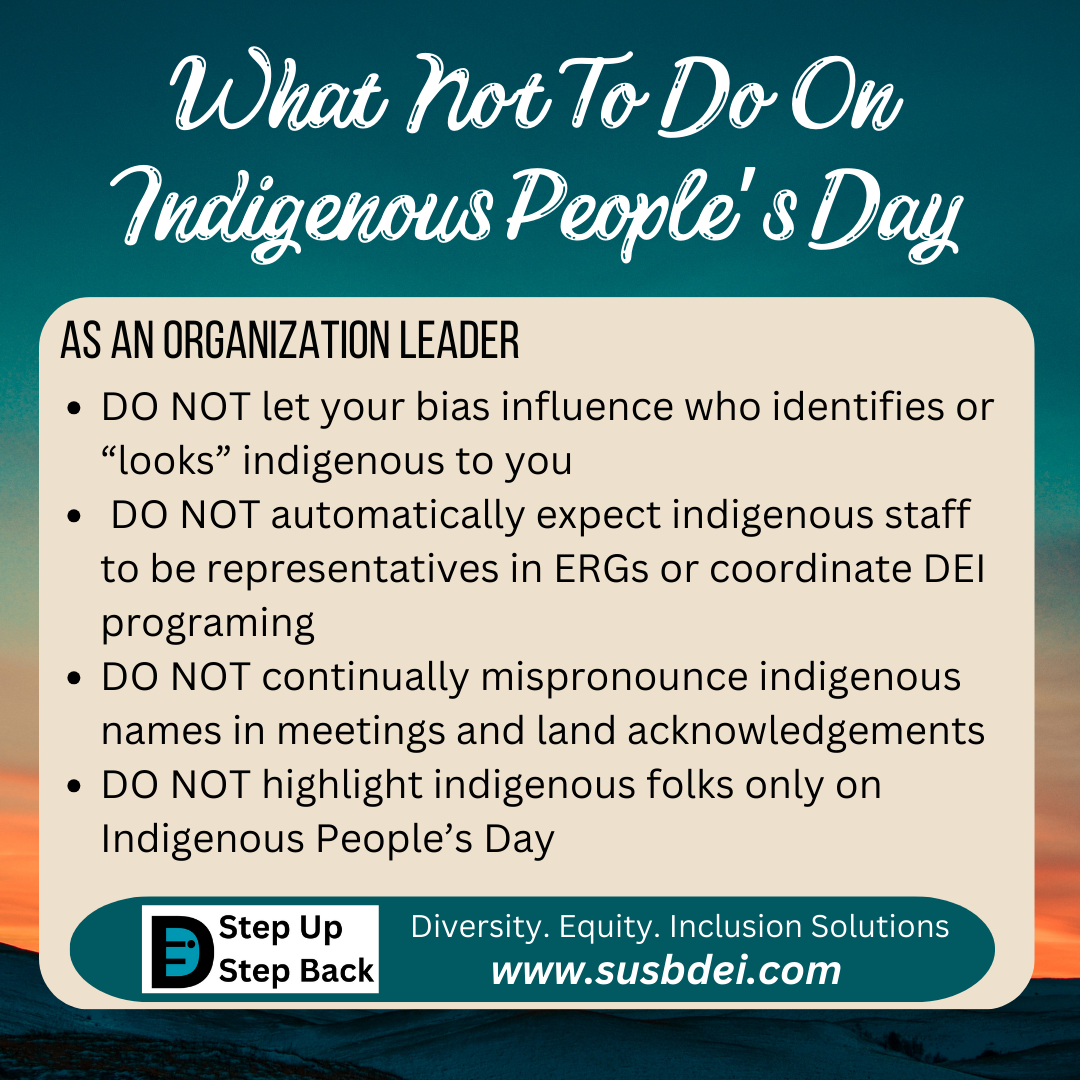
 RSS Feed
RSS Feed